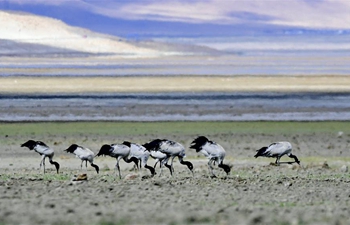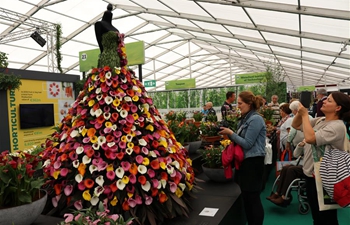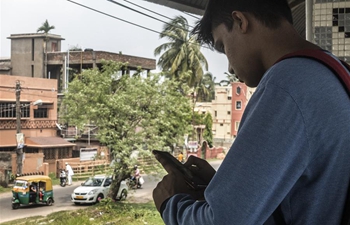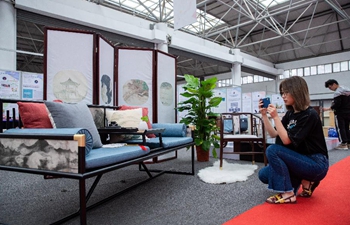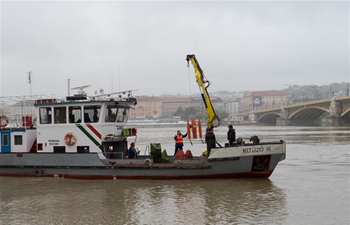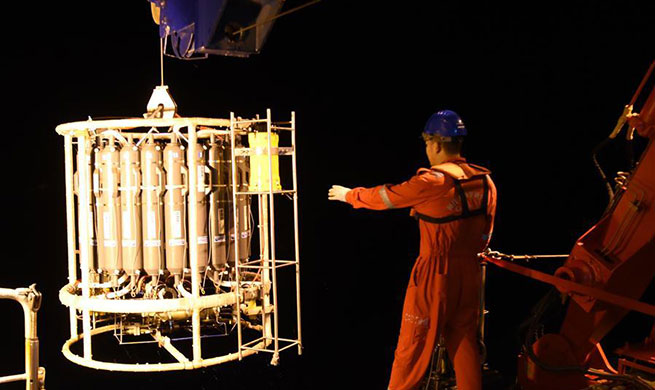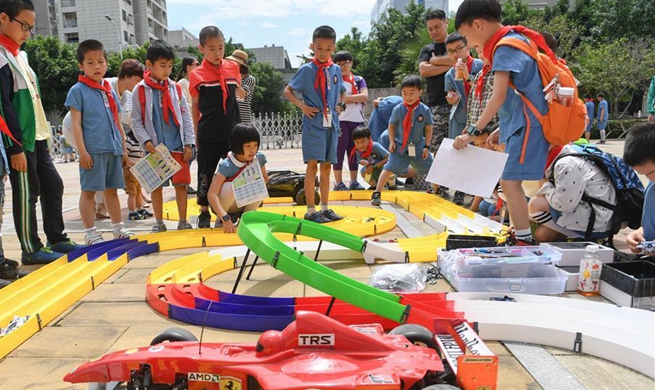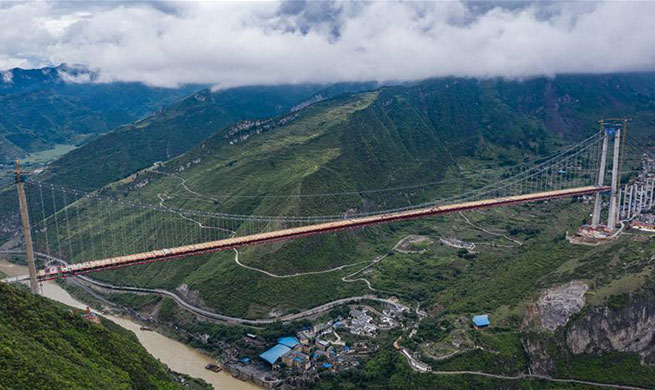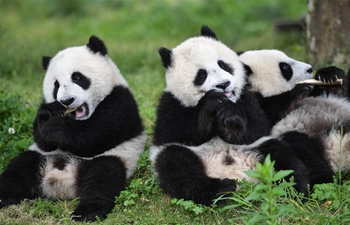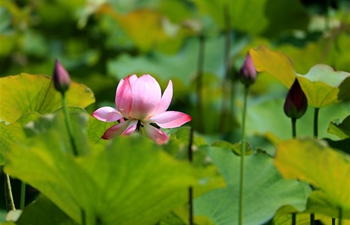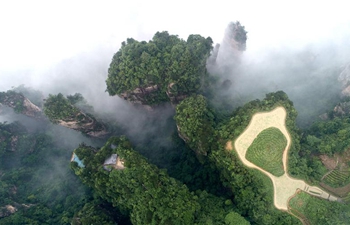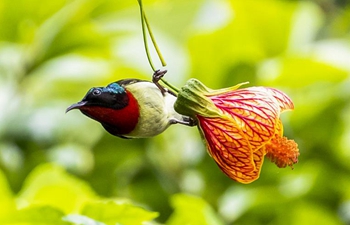KATHMANDU, May 31 (Xinhua) -- Sun Ningning, from central China's Henan Province, faced strong resistance from her parents when she told them of her ambition to climb Mt. Qomolangma, as they were worried for her life.
Yet after the 29-year-old reached the top of the world's tallest mountain at the first attempt on May 22, her parents are in awe of her achievements.
"They were not aware of what it meant to reach the top of Mt. Qomolangma and they were worried about my life and discouraged me from going there. But after my ascent, they are really proud of me now," Sun told Xinhua this week after returning to Nepal's capital, Kathmandu. "I am receiving a lot of congratulatory messages from friends and colleagues!"
Sun was joined on her successful expedition by other two female Chinese climbers: Ma Liyamu from Xinjiang Uyghur Autonomous Region, and Tsang Yin Hung from Hong Kong.
For Ma and Tsang, it was their second ascent to the summit of Mt. Qomolangma, as Ma had reached the top of the mountain in 2016, and Tsang conquered it in 2017. But for Sun, this was her first such experience.
"What surprised me when I reached the top was the shadow of Mt. Qomolangma on other mountains. It was simply magnificent and stunning and it was a heavenly experience," she shared.
Growing up, Sun didn't have any aspirations to climb Mt. Qomolangma, but she loved drawing, especially nature and mountain scenes.
Having worked as a designer, she had some mountaineering experience after climbing Mt. Manaslu in September last year. Before she came into contact with Ma, it was not in her mind to form an all-female, all-Chinese team to summit the mountain.
By contrast, forming an all-Chinese women's team to climb Mt. Qomolangma had long been a dream for Ma. She formed a squad in 2014 but had to abandon plans to climb the mountain after a deadly avalanche, and a devastating earthquake in Nepal in 2015 put paid to her mountaineering ambitions that year too.
For the last six years, Ma has run an expedition company in partnership with Nepali climbers, and it was her company which organized this year's expedition for the Chinese trio.
For her, the main objective of forming an all-women team was to challenge perceptions and break down barriers for women in the largely male-dominated climbing world. However, it was a daunting task for the three to climb Mt. Qomolangma this year, because of the limited window for climbing and different speeds of the team members.
On May 22, Tsang reached the top at 3am, while her two teammates followed at 9am. Nine climbers were reported to have died on Mt. Qomolangma this year, and photographs of long queues of climbers on the route also drew worldwide attention. Reports suggesting such traffic jams contributed to the deaths of so many climbers this year also made international headlines. However, Ma does not see this in this light.
"Avalanches, natural disasters, and strong winds on Mt. Qomolangma are normal. We all attempted to summit the mountain accepting these challenges," said Ma.
According to the three climbers, the long queues of mountaineers came about as many expedition teams had planned to climb the mountain in the space of the same two days.
Although around 200 climbers reached top of the mountain on May 22, the most ever in a single day, the Chinese trio said they were not overly affected by any congestion.
Ma believes that mountaineering is safe as long as climbers work together and follow the instructions of guides.
43-year-old Tsang, who was a high school teacher before she first climbed Mt. Qomolangma in 2017, served as the trio's team leader.
She had to shoulder greater responsibility this time because of limited climbing window, charged with both raising funds and maintaining the group's team spirit. Although she had already summitted Mt. Qomolangma, she decided to join the all-women's team thanks to her previous friendship with Ma.
"When I first attempted to climb Mt. Qomolangma, it was because my students had challenged me to do so and I accepted," she said. "I used to tell my students that whenever they have ideas like this, they should finish them, and I did it."
Despite climbing the world's tallest mountain multiple times, the Chinese women's team doesn't want to encourage everybody to take up mountaineering, which is full of challenges and risk. But they do want to help other women achieve their respective dreams.




